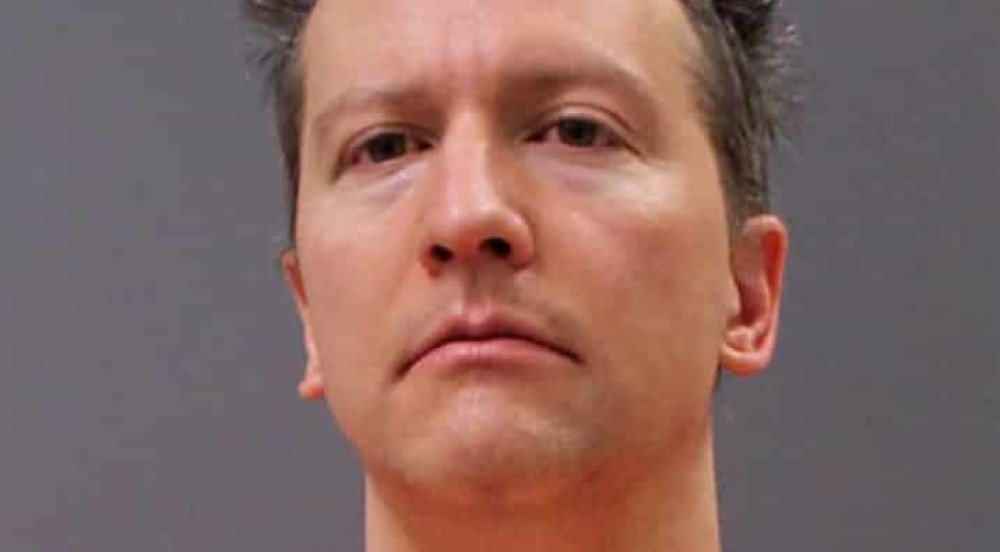Friday, June 25th was the sentencing date for former Minneapolis police officer Derek Chauvin, who in May 2020 killed George Floyd, an unarmed Black man by kneeling on his neck for approximately 9 minutes and 29 seconds. I texted the Floyd family, the Attorney Benjamin Crump and the Reverend Al Sharpton, whose organization the National Action Network had once again been at the forefront in advocacy in Floyd's murder, to advise them that I would be flying into Minneapolis to show my support for the Floyd family and my fellow activists in Minnesota.
I arrived outside the courthouse joining hundreds of local residents waiting to hear the sentence that would be imposed on Chauvin. The afternoon sun was blazing hot; nevertheless, we all braved the heat and stood outside and listened to the courthouse proceedings on a portable sound system, as members of the Floyd family gave emotional victim impact statements asking for the maximum sentence.
The first person to speak was Floyd’s 7-year-old daughter Gianna. Her pre-recorded video message at the hearing moved several people around me to tears. When asked what she would say to her father if she could speak to him right now, Gianna replied, "I miss you and I love you.” Floyd’s two brothers, Philonise and Terrence Floyd, also spoke passionately about the emotional trauma they, along with other members of their family, have experienced. Brandon Williams, Floyd’s nephew, called Chauvin's actions "a malicious display of hate and abuse of power."
"Not only did he kill George, but he also displayed a total lack of consideration for human life as he did so," Williams continued. "You saw it. I saw it. Millions of people across the country and the globe witnessed the agent of hate."
As we continued to wait for the sentence to be imposed, Chauvin’s mother Carolyn Pawlenty also had an opportunity to speak at the hearing. In the epitome of white privilege, power, and racism, she never specifically addressed Floyd’s death or his family, but chose to plead for leniency for her son instead.
Pawlenty defended her son stating that “I want this court to know that none of these things are true and that my son is a good man,” and that she always believed in his innocence and will never waiver.
“When you sentence my son, you will also be sentencing me,” she told the judge, noting that she’ll no longer be able to give him a “special hug” and that his father will likely pass before his release.
Needless to say, her statements which took nearly 10 minutes (which ironically is about the amount of time it took for her son to kill Floyd) infuriated the crowd, with many booing her after each statement.
Chauvin who had never spoken during his trial decided to speak last at the hearing and spoke to Floyd’s family briefly citing “some additional legal matters at hand.”
"I do want to give my condolences to the Floyd family. There is going to be some other information in the future that would be of interest. And I hope things will give you some peace of mind,” said Chauvin. As he finished speaking, many in the crowd were perplexed by such a strange closing comment from him. However, we all took notice the apple does not fall far from the tree. Not once did Chauvin or his mother offer an apology to the Floyd family.
And finally, the moment of truth had arrived. Hennepin County Judge Peter Cahill sentenced Chauvin to 22.5 years in state prison for charges of second-degree unintentional murder, third-degree murder, and second-degree manslaughter in Floyd’s death—which brought an immediate roar of approval from the crowd; however, I was not satisfied at all. I believe that the public torture and murder of Floyd by Chauvin seen across the globe by millions deserved maximum jail time. Chauvin is still facing federal charges which might mean he may get the sentence he earned in federal court. Until then, once again members of the Black community continue to receive partial justice.
Perhaps my feelings were summed up best by the civil rights activist, the Rev. Al Sharpton, who released a statement following the decision, “Let us not feel that we’re here to celebrate.” He added, “Justice would have been George Floyd never having been killed. Justice would have been the maximum. We got more than we thought only because we have been disappointed so many times before.”
Najee Ali is a civil rights activist and the Southern California Community Relations Ambassador for Operation HOPE, a nonprofit for-purpose organization working to disrupt poverty and empower inclusion for low and moderate-income youth and adults.













